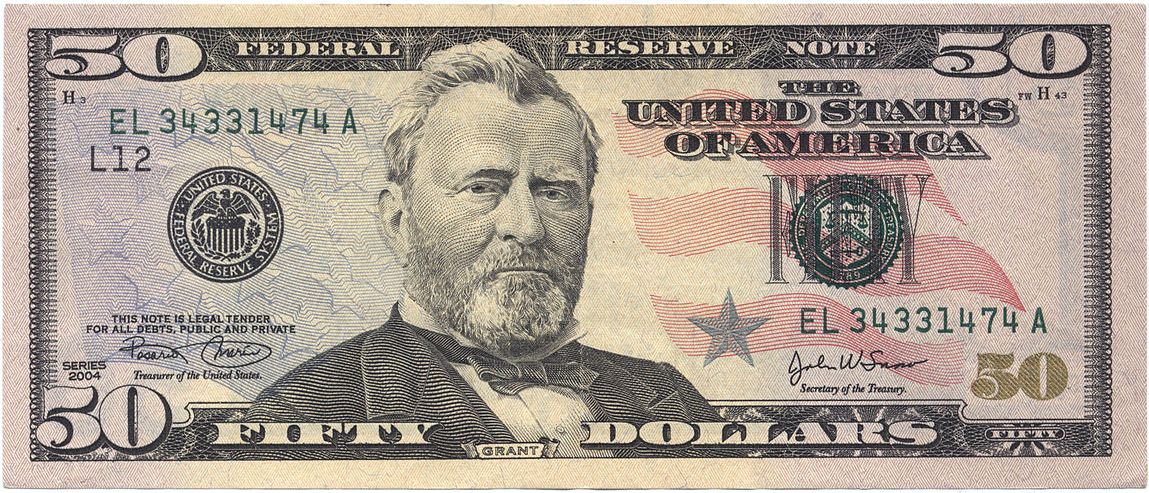Have you ever wondered about the financial moves of famous people, especially when it comes to something as big as real estate? It's pretty interesting, isn't it? We often see celebrities making headlines for their music, movies, or sports achievements, but their business smarts, especially in property, sometimes fly under the radar. Curtis Jackson, known to most as 50 Cent, really stands out here. His journey from a music icon to a significant player in the property market is, you know, quite a story to tell.
For many, thinking about how someone builds wealth beyond their primary career is, well, a fascinating topic. Real estate, with its ups and downs, typically offers a different kind of stability and growth. So, seeing someone like 50 Cent, who started in a completely different field, make serious moves in this area, really gets people curious. It's not just about owning big houses; it's about strategic buying and selling, and sometimes, too, even developing.
This article looks into 50 Cent real estate investments, exploring some of his notable property ventures. We'll try to figure out what lessons, if any, we can take from his experiences. It’s a chance to see how a keen business sense can be applied across different industries, pretty much like how a powerful new graphics card, say a 5070Ti, can perform almost as well as a 4080S, just in a different package. We will also touch upon his personal details, you know, just to give a fuller picture.
Table of Contents
- About 50 Cent: A Brief Overview
- Personal Details: Curtis Jackson
- The Connecticut Mansion: A Major Investment
- Real Estate Strategy: Beyond the Music
- Lessons Learned: What His Investments Show Us
- Frequently Asked Questions About 50 Cent's Real Estate
- Conclusion
About 50 Cent: A Brief Overview
Curtis James Jackson III, better known as 50 Cent, rose to global fame as a rapper, actor, and entrepreneur. His career, which began in the early 2000s, saw him become one of the best-selling music artists. Hits like "In Da Club" and "Candy Shop" really cemented his place in pop culture, you know, as seen in his official music videos. But his ambition didn't stop with music. He branched out into various business ventures, including clothing, beverages, and, yes, real estate.
His story is one of resilience and business savvy. From humble beginnings, he built a huge empire. This includes, very clearly, his interests in property. It shows that talent can open doors, but smart business decisions keep them open, and sometimes, too, open up new ones entirely. It's a bit like how a solid computer configuration, updated monthly, can keep you ahead, as mentioned in some tech guides, where performance is key.
Personal Details: Curtis Jackson
Understanding a bit about the person behind the investments can often provide context. Curtis Jackson's life has been, arguably, quite eventful. Here's a quick look at some key details, just for reference.
| Full Name | Curtis James Jackson III |
| Known As | 50 Cent |
| Occupation | Rapper, Actor, Entrepreneur, Investor |
| Birth Year | 1975 |
| Origin | South Jamaica, Queens, New York |
The Connecticut Mansion: A Major Investment
Perhaps the most famous of 50 Cent real estate investments is his sprawling Connecticut mansion. This property, originally owned by boxer Mike Tyson, was, you know, a massive estate. It boasted 52 rooms, a private lake, and even a casino. Buying such a large property was, obviously, a big statement at the time, reflecting his success and aspirations.
He acquired this property in 2003, reportedly for around $4.1 million. The idea was, pretty much, to make it his primary residence and a symbol of his achievements. However, maintaining a property of that size can be, well, incredibly expensive. It's like having a top-tier gaming PC; the initial cost is one thing, but the power consumption and upkeep are another. This mansion, for example, had annual expenses reportedly in the millions.
Over the years, the mansion became a source of significant financial strain. It was, in some respects, a very large asset that also carried a very large liability. He tried to sell it for many years, but finding a buyer for such a unique and high-maintenance property proved, actually, quite difficult. The price kept dropping, similar to how an older generation CPU, like an 11th gen processor, might become more appealing only if its price gets low enough, as some tech experts might say.
Eventually, after many years on the market and a significant price reduction, the mansion sold in 2019 for about $2.9 million. This was, you know, a considerable loss from his initial purchase price, not even counting the millions spent on upkeep. It serves as a stark reminder that even for someone with vast resources, real estate can be, sometimes, a tricky business. This experience really highlighted the difference between owning a luxury item and making a sound investment, particularly when the market isn't quite right.
Real Estate Strategy: Beyond the Music
While the Connecticut mansion story is widely known, it’s important to remember that 50 Cent’s involvement in real estate likely goes beyond just one large residential property. Like many successful individuals, he probably sees property as a way to diversify wealth. This could include commercial properties, smaller residential units, or even land. The goal, typically, is to create multiple income streams or build long-term value, you know, over time.
His approach, in a way, seems to be about seizing opportunities, much like how a new 50-series graphics card might offer a good price-to-performance ratio, making it a compelling choice for many. He's a businessman who understands market dynamics, even if some ventures don't pan out as expected. This involves, quite often, a mix of high-profile purchases and potentially more discreet, strategic investments.
One might argue that his experience with the mansion taught him valuable lessons about liquidity and the true cost of ownership. It's not just the purchase price; it's the taxes, maintenance, and potential for market shifts. This is, basically, a lesson for anyone considering a significant property purchase. You know, that the price of something, say, like a power bank that costs over 50 yuan, might come with hidden costs like overheating if it's always plugged in.
He has also been involved in various community initiatives and business developments, some of which might involve property. For example, creating spaces for his G-Unit brand or other ventures. This shows a broader view of real estate, not just as personal luxury, but as a tool for business expansion and, you know, brand building. It's a pretty smart way to look at things, honestly.
Lessons Learned: What His Investments Show Us
So, what can we take away from 50 Cent real estate investments? Well, a few things, actually. First, even those with significant wealth can face challenges in the property market. It's not always a guaranteed win. The market can be, sometimes, unpredictable, and a property's value can fluctuate, just like how the performance of a 5070 graphics card might be "basically flat" compared to the previous generation, despite new features.
Second, the true cost of ownership goes far beyond the purchase price. Maintenance, taxes, and utilities can add up, especially for very large properties. This is something, you know, anyone looking to buy property should consider very carefully. It's a bit like owning a 50-inch television; the screen size is impressive, but the space it takes and the power it uses are part of the overall commitment.
Third, diversification is key. While one large, high-profile property might have caused issues, it's likely that his other, less publicized investments provided more stable returns or less hassle. It's a pretty common strategy for those who, you know, manage large amounts of money. This helps balance out the risk, and that, is that, a really important point.
Finally, real estate can be a long game. Sometimes, properties take a while to sell, or their value changes over time. Patience, and a willingness to adapt, are, basically, important traits for any property investor. This applies whether you're a global superstar or, you know, just someone looking to buy their first home. It’s about making decisions that hold up over time, perhaps even for people approaching that 50-year-old threshold where life goals become, well, very clear.
Frequently Asked Questions About 50 Cent's Real Estate
Did 50 Cent lose money on his Connecticut mansion?
Yes, he did, actually. He bought the mansion for about $4.1 million and sold it for roughly $2.9 million. This was, you know, a direct loss of over a million dollars, not counting the huge costs of upkeep during the years he owned it. It was, pretty much, a very costly experience for him.
What kind of real estate does 50 Cent invest in?
While his Connecticut mansion was a residential property, 50 Cent, like many entrepreneurs, likely invests in a mix of residential and commercial real estate. His overall strategy tends to be about building a diverse business portfolio, so, you know, property is just one piece of that larger puzzle.
Can everyday people learn from 50 Cent's real estate experiences?
Absolutely, you know, there are lessons for everyone. His experience shows the importance of considering all costs associated with property, not just the purchase price. It also highlights how market conditions and the unique nature of a property can affect its value and saleability. It's a pretty practical lesson for anyone looking at property, you know, regardless of their budget.
Conclusion
50 Cent real estate investments provide a really interesting look into the property ventures of a high-profile individual. His journey shows that even with significant resources, the property market can present challenges and, sometimes, unexpected outcomes. The story of his Connecticut mansion, for example, is a clear reminder that property can be, in some respects, a very complex asset to manage.
His experiences, however, also highlight the importance of business acumen and adaptability. For those looking to learn more about property investment strategies, or perhaps explore how public figures manage their finances, his story offers, you know, some valuable insights. It’s a good way to think about how even a $50 federal reserve note, with its historical significance, represents a foundation of wealth that can be put to use in many ways, including property.
Understanding the full scope of property ownership, from initial purchase to long-term maintenance, is pretty much essential. You can learn more about financial planning for large assets on our site, which can help you prepare for your own property goals. It's all about making informed choices, you know, and learning from those who have walked the path before you.



Detail Author:
- Name : Syble Mueller
- Username : rosie51
- Email : dominique81@gmail.com
- Birthdate : 1988-10-11
- Address : 784 Lubowitz Rue Apt. 848 Port Gerardchester, IL 32452
- Phone : 1-703-956-2065
- Company : Robel, Gaylord and Glover
- Job : Wellhead Pumper
- Bio : Voluptas suscipit ea nihil tempore consequuntur. Nisi veritatis mollitia eum quae. Sit qui explicabo et hic error hic quis ut.
Socials
twitter:
- url : https://twitter.com/cjerde
- username : cjerde
- bio : Cumque velit quia laboriosam laborum qui incidunt. Iste qui inventore error nobis beatae. Repellat modi tempore ut quod.
- followers : 187
- following : 2054
linkedin:
- url : https://linkedin.com/in/christyjerde
- username : christyjerde
- bio : Earum aut quis omnis numquam amet.
- followers : 4575
- following : 765
tiktok:
- url : https://tiktok.com/@christy_dev
- username : christy_dev
- bio : Dolor ratione et vel.
- followers : 5865
- following : 2439
instagram:
- url : https://instagram.com/christy8208
- username : christy8208
- bio : Placeat ducimus commodi ea esse. Minus doloribus dolor debitis. Qui esse sunt debitis aut.
- followers : 1895
- following : 199